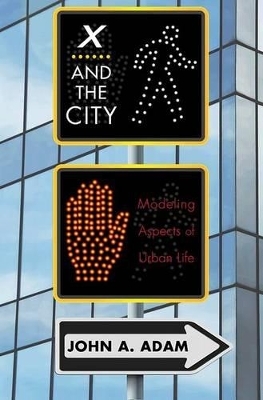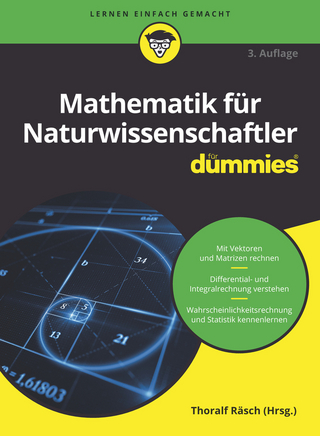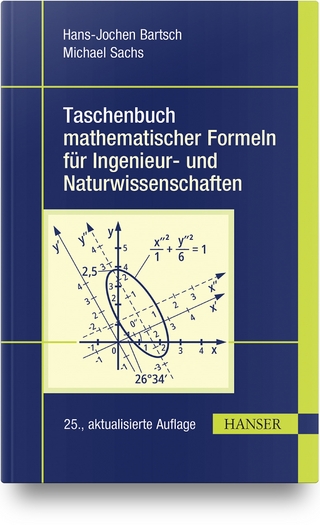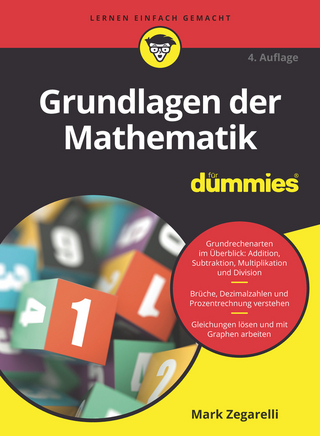
X and the City
Princeton University Press (Verlag)
978-0-691-15464-0 (ISBN)
X and the City, a book of diverse and accessible math-based topics, uses basic modeling to explore a wide range of entertaining questions about urban life. How do you estimate the number of dental or doctor's offices, gas stations, restaurants, or movie theaters in a city of a given size? How can mathematics be used to maximize traffic flow through tunnels? Can you predict whether a traffic light will stay green long enough for you to cross the intersection? And what is the likelihood that your city will be hit by an asteroid? Every math problem and equation in this book tells a story and examples are explained throughout in an informal and witty style. The level of mathematics ranges from precalculus through calculus to some differential equations, and any reader with knowledge of elementary calculus will be able to follow the materials with ease. There are also some more challenging problems sprinkled in for the more advanced reader. Filled with interesting and unusual observations about how cities work, X and the City shows how mathematics undergirds and plays an important part in the metropolitan landscape.
John A. Adam is professor of mathematics at Old Dominion University. He is the author of A Mathematical Nature Walk and Mathematics in Nature, and coauthor of Guesstimation: Solving the World's Problems on the Back of a Cocktail Napkin (all Princeton).
Preface xiii Acknowledgments xvii Chapter 1 Introduction: Cancer, Princess Dido, and the city 1 Chapter 2 Getting to the city 7 Chapter 3 Living in the city 15 Chapter 4 Eating in the city 35 Chapter 5 Gardening in the city 41 Chapter 6 Summer in the city 47 Chapter 7 Not driving in the city! 63 Chapter 8 Driving in the city 73 Chapter 9 Probability in the city 89 Chapter 10 Traffic in the city 97 Chapter 11 Car following in the city--I 107 Chapter 12 Car following in the city--II 113 Chapter 13 Congestion in the city 121 Chapter 14 Roads in the city 129 Chapter 15 Sex and the city 135 Chapter 16 Growth and the city 149 Chapter 17 The axiomatic city 159 Chapter 18 Scaling in the city 167 Chapter 19 Air pollution in the city 179 Chapter 20 Light in the city 191 Chapter 21 Nighttime in the city--I 209 Chapter 22 Nighttime in the city--II 221 Chapter 23 Lighthouses in the city? 233 Chapter 24 Disaster in the city? 247 Chapter 25 Getting away from the city 255 Appendix 1 Theorems for Princess Dido 261 Appendix 2 Dido and the sinc function 263 Appendix 3 Taxicab geometry 269 Appendix 4 The Poisson distribution 273 Appendix 5 The method of Lagrange multipliers 277 Appendix 6 A spiral braking path 279 Appendix 7 The average distance between two random points in a circle 281 Appendix 8 Informal "derivation" of the logistic differential equation 283 Appendix 9 A miniscule introduction to fractals 287 Appendix 10 Random walks and the diffusion equation 291 Appendix 11 Rainbow/halo details 297 Appendix 12 The Earth as vacuum cleaner? 303 Annotated references and notes 309 Index 317
| Zusatzinfo | 6 halftones.104 line illus. 8 tables. |
|---|---|
| Verlagsort | New Jersey |
| Sprache | englisch |
| Maße | 152 x 235 mm |
| Gewicht | 595 g |
| Themenwelt | Sachbuch/Ratgeber ► Natur / Technik |
| Mathematik / Informatik ► Mathematik ► Allgemeines / Lexika | |
| Mathematik / Informatik ► Mathematik ► Analysis | |
| Mathematik / Informatik ► Mathematik ► Mathematische Spiele und Unterhaltung | |
| ISBN-10 | 0-691-15464-3 / 0691154643 |
| ISBN-13 | 978-0-691-15464-0 / 9780691154640 |
| Zustand | Neuware |
| Haben Sie eine Frage zum Produkt? |
aus dem Bereich


